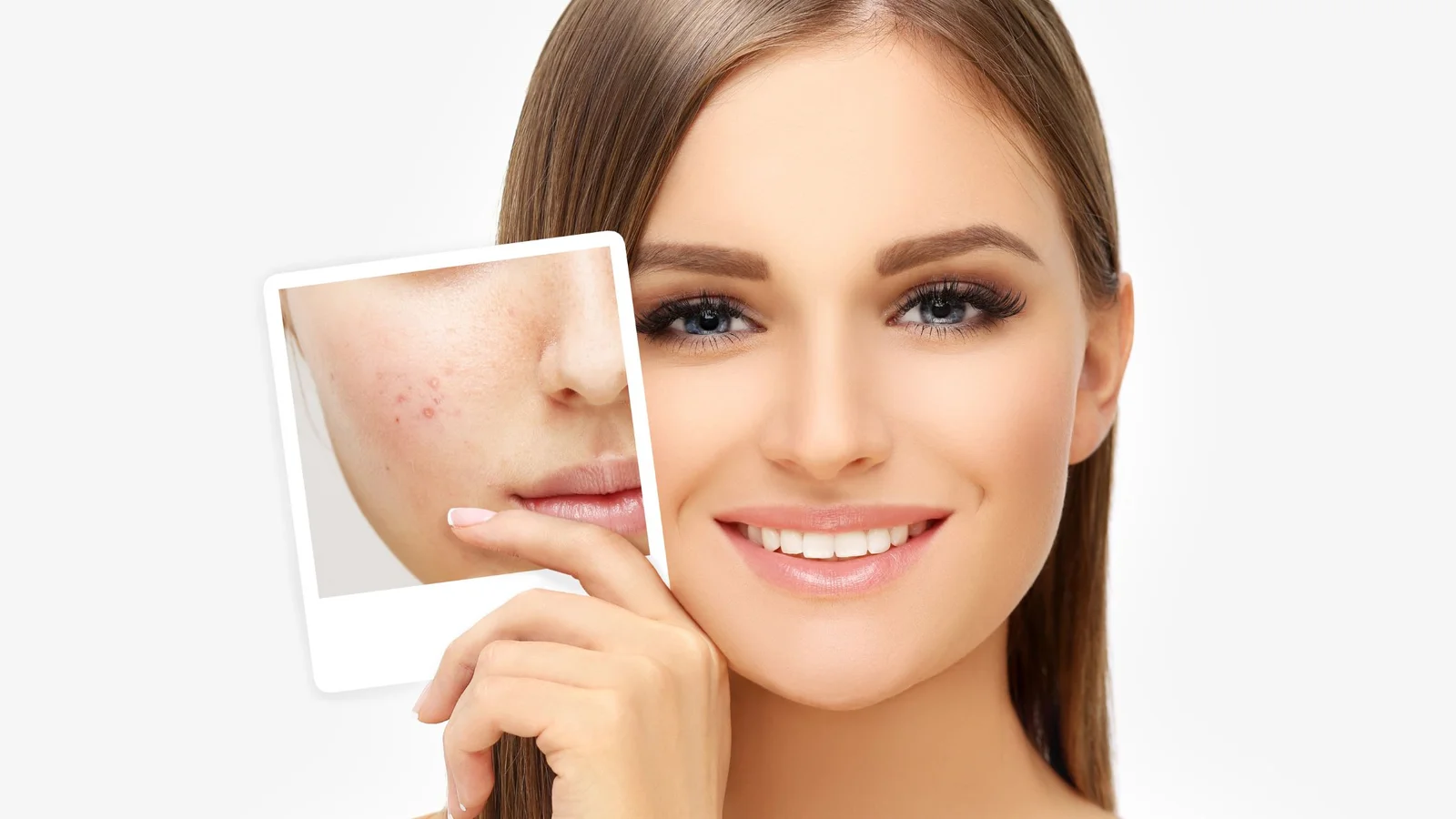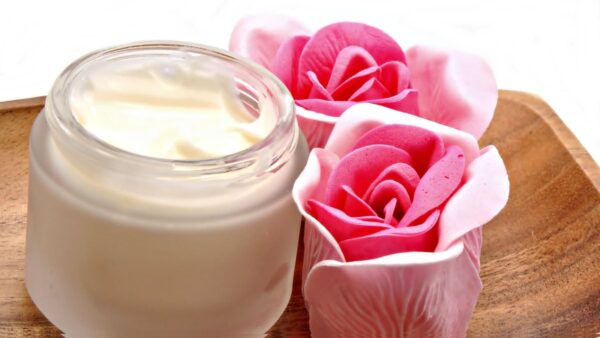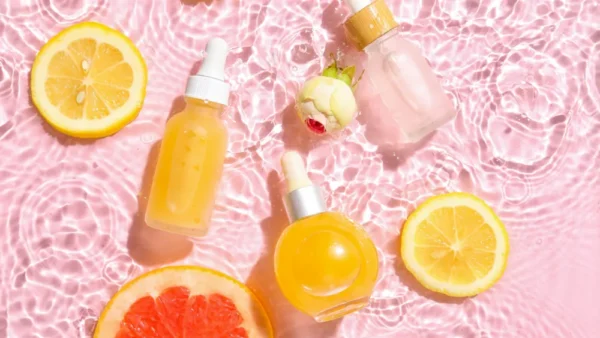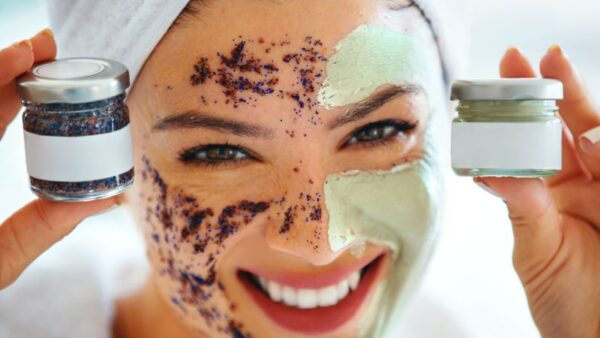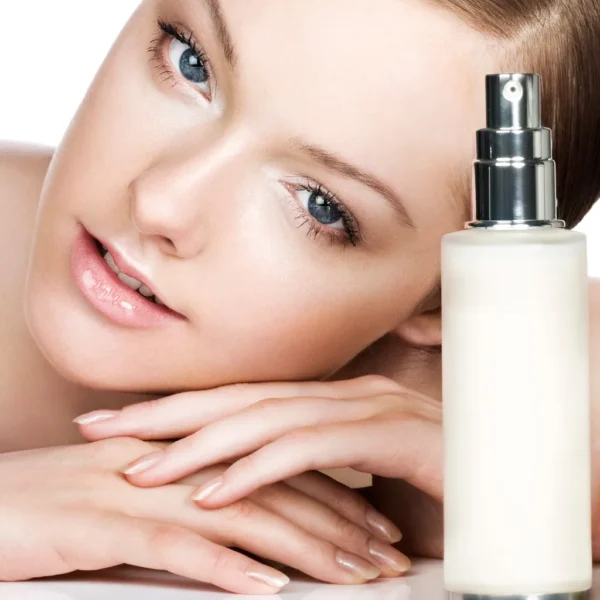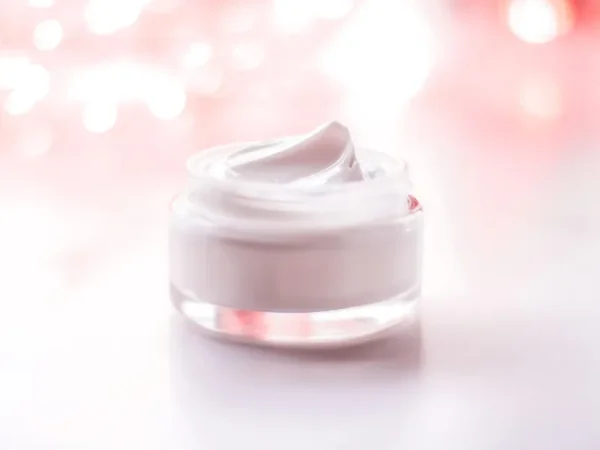Top 10 Common Skin Care Problems and How to Prevent Them
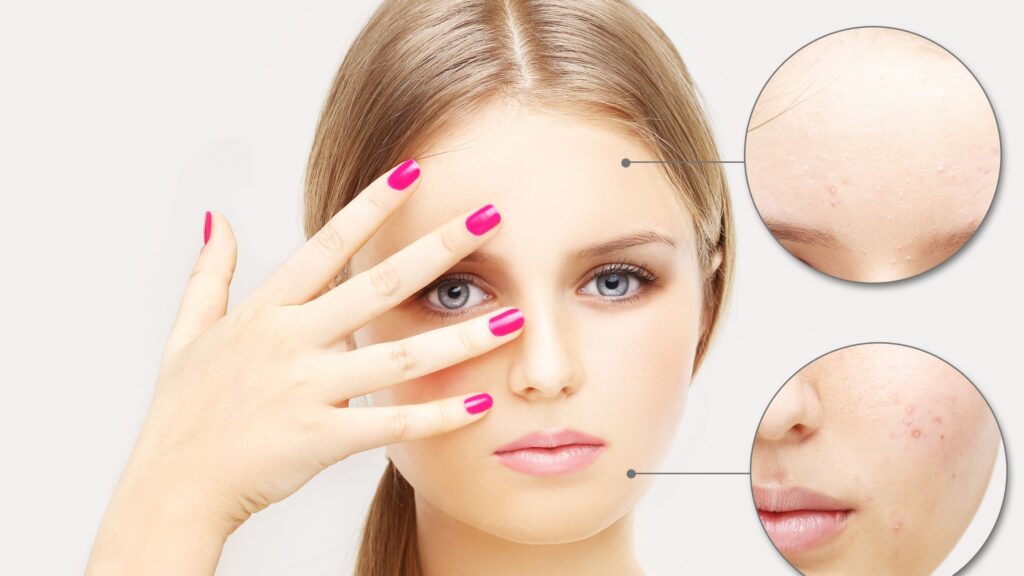
Understanding Your Skin Type
The first step in any effective skincare routine is understanding your skin type. There are generally five skin types:
- Normal: Balanced skin that is not too oily or dry.
- Oily: Skin that produces excess sebum, leading to a shiny appearance and enlarged pores.
- Dry: Skin that feels tight or flaky due to a lack of moisture.
- Combination: A blend of dry and oily areas, usually characterized by an oily T-zone (forehead, nose, chin) and dry cheeks.
- Sensitive: Skin that reacts easily to various products or environmental factors, resulting in redness, itching, or irritation.
Tips for Identifying Your Skin Type:
- Cleanse and Wait: Wash your face with a gentle cleanser and leave it for an hour without applying any products. Observe how your skin feels.
- Observe the Shine: After cleansing, if your forehead and nose appear shiny but your cheeks feel dry, you likely have combination skin.
- Use the Tissue Test: Press a tissue against various areas of your face. You may have oily skin if it picks up oil from the T-zone. If it’s mostly dry, you likely have dry skin.
Common Skin Problems and Their Solutions
1. Acne
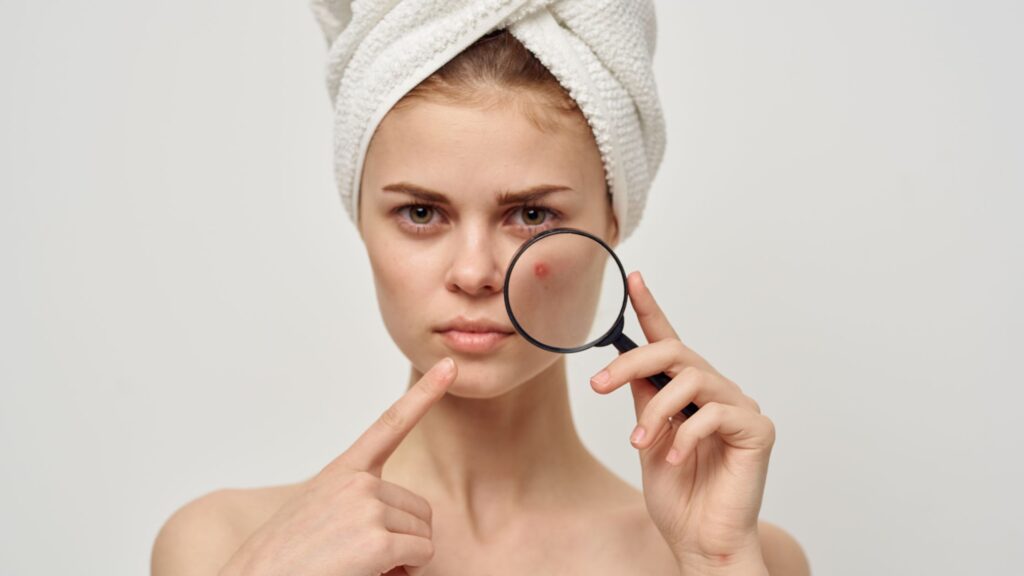
Description: Acne can manifest in various forms, such as blackheads, whiteheads, and cystic lesions, primarily due to excess oil, blocked pores, bacteria, or hormonal changes.
Solution:
- Maintain a Regular Cleansing Routine: Use a gentle cleanser twice daily. Look for ingredients like salicylic acid or benzoyl peroxide.
- Non-Comedogenic Products: Ensure that all cosmetics and skincare products are labeled “non-comedogenic” to minimize pore blockage.
- Avoid Picking or Popping: This can lead to scarring and further breakouts.
- Consult a Dermatologist: For severe cases, topical or oral medications, such as retinoids or antibiotics, may be warranted.
One of my favorite face wash brands is Abib, which means ‘grain’. We’re all about keeping it real and staying true to the natural vibes in our beauty products. This is my go-to face wash—it’s perfect for battling acne!
2. Dry Skin
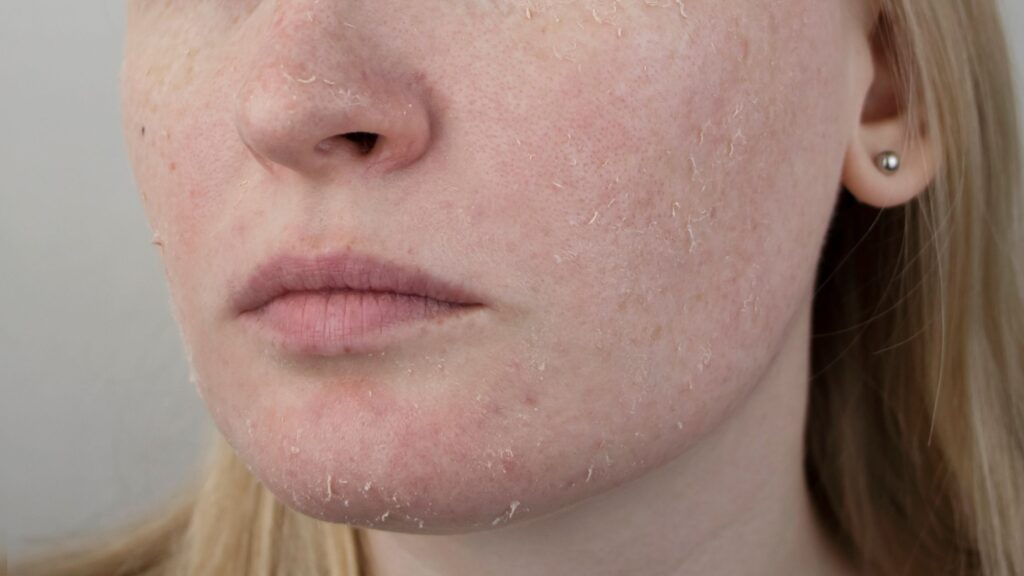
Description: Dry skin may feel tight, rough, or scaly and can be exacerbated by weather, harsh soaps, or certain medical conditions.
Solution:
- Hydration: Use a daily moisturizer with ingredients like hyaluronic acid or glycerin to lock moisture in.
- Avoid Hot Showers: Hot water can strip natural oils. Opt for lukewarm water instead.
- Use a Humidifier: In dry environments, especially during winter, a humidifier can help maintain skin moisture.
3. Hyperpigmentation
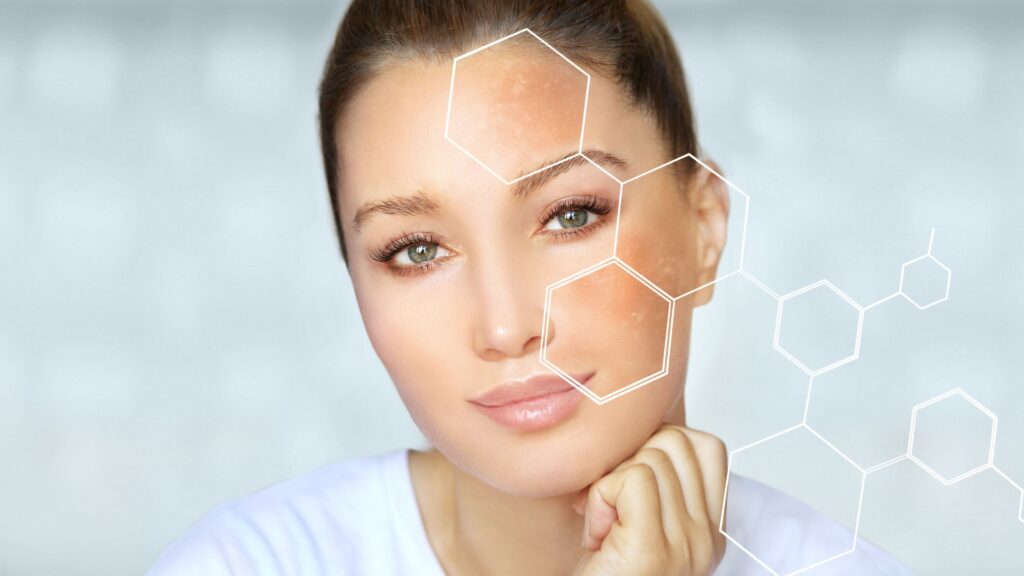
Description: Hyperpigmentation refers to dark spots or patches on the skin, often due to sun exposure, hormonal changes, or inflammation.
Solution:
- Sun Protection: Always wear broad-spectrum SPF 30 or higher, even on cloudy days.
- Topical Treatments: Ingredients like vitamin C, retinoids, and hydroquinone can help reduce pigmentation.
- Professional Treatments: Options like chemical peels, laser therapy, or microdermabrasion can effectively target more pronounced pigmentation issues.
4. Rosacea
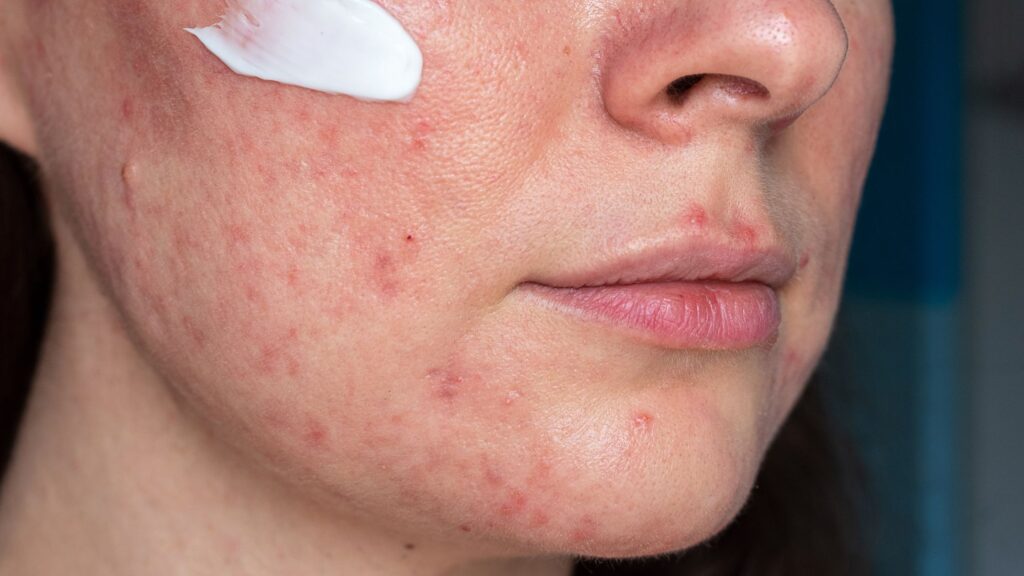
Description: Rosacea is a chronic inflammatory skin condition causing redness, flushing, and sometimes pustules, typically on the face.
Solution:
- Identify Triggers: Common triggers include spicy foods, alcohol, and temperature changes. Keeping a diary may help identify individual triggers.
- Mild Cleansers: Avoid products containing alcohol or fragrance.
- Topical Medications: Prescription medications such as metronidazole or azelaic acid may reduce inflammation.
5. Aging Skin
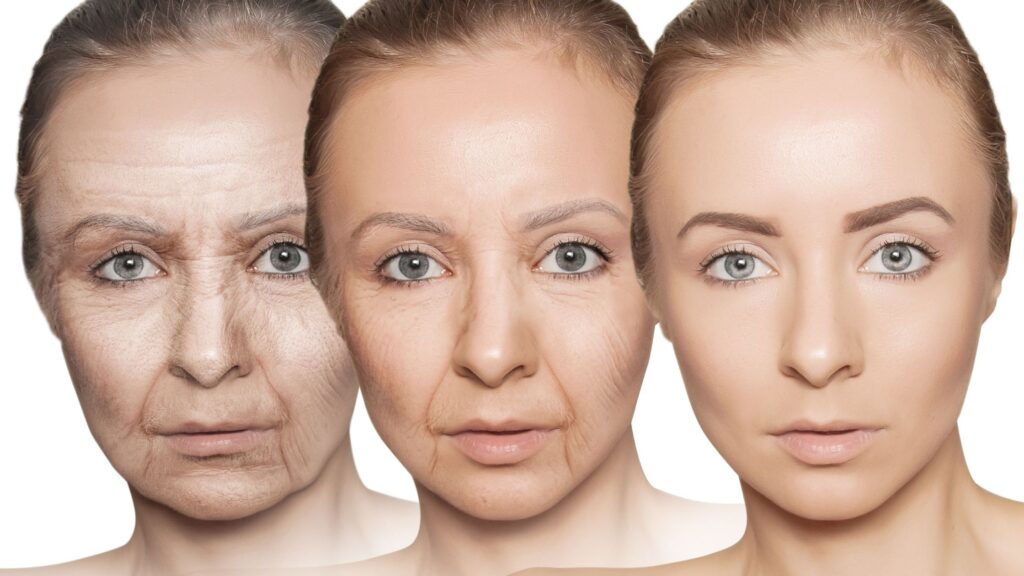
Description: Aging skin often appears thinner, drier, and less elastic, with wrinkles, fine lines, age spots, and uneven texture becoming more prominent.
Solution:
- Antioxidants: Use serums containing vitamin C and E to protect against free radicals.
- Sunscreen: Daily use of sunscreen is non-negotiable in preventing premature aging.
- Retinoids: Over-the-counter and prescription retinoids stimulate collagen production and cell turnover, helping to reduce signs of aging.
6. Oily Skin
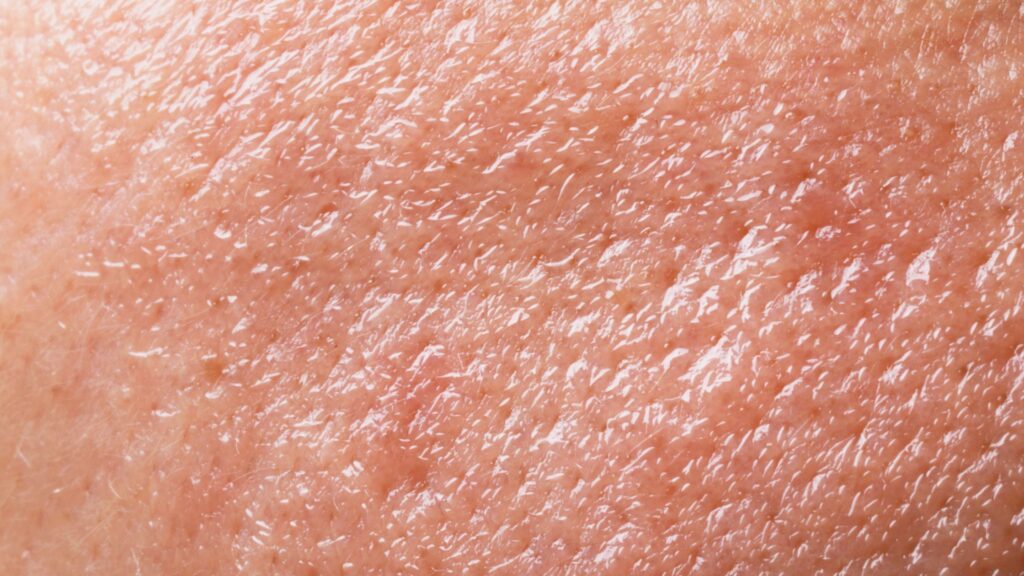
Description: Oily skin appears shiny, often with enlarged pores, blackheads, and acne. It can feel greasy and looks glossy, especially in humidity.
Solution:
- Consistent Cleansing Routine: Use a gentle foaming or gel cleanser containing salicylic acid or benzoyl peroxide twice daily to remove excess oil, prevent clogged pores, and maintain skin hydration.
- Oil-Free Moisturizers and Sunscreens: Opt for lightweight, non-comedogenic moisturizers and sunscreens to provide hydration without adding extra oil, keeping the skin balanced and protected.
- Targeted Treatments: Incorporate products with ingredients like niacinamide, tea tree oil, or clay masks into your skincare routine, which can help regulate sebum production and reduce shine while treating acne if necessary.
7. Hyperpigmentation
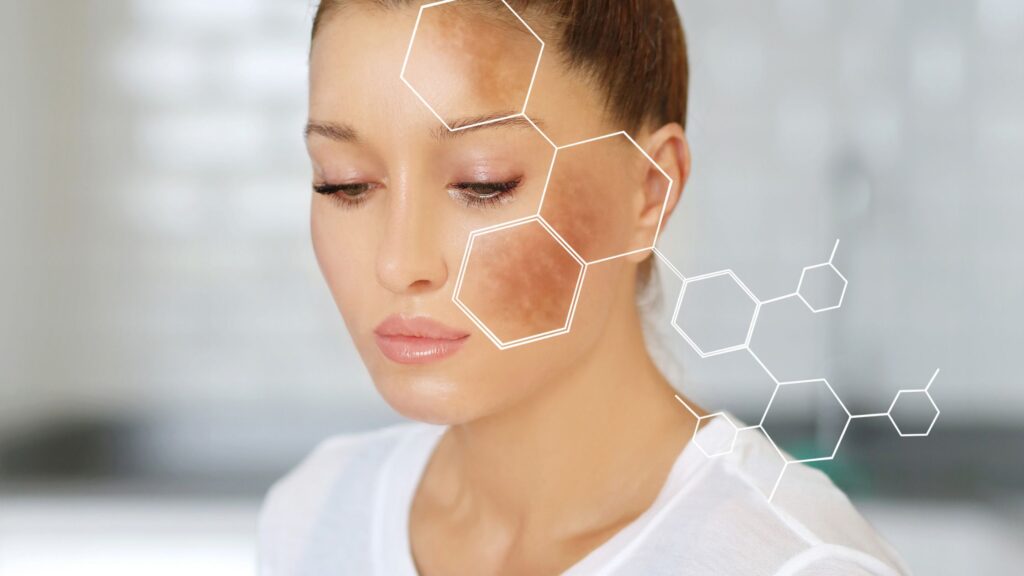
Description: Hyperpigmentation appears as darkened patches or spots on the skin, resulting in uneven skin tone due to excess melanin production.
Solution:
- Topical Treatments: Use products containing active ingredients such as hydroquinone, retinoids, vitamin C, or azelaic acid. These can help lighten dark spots and even out skin tone by inhibiting melanin production and promoting cell turnover.
- Chemical Peels: Consider professional chemical peels that utilize alpha-hydroxy acids (AHAs) or beta-hydroxy acids (BHAs) to exfoliate the skin. These acids remove the top layer and reveal fresher skin underneath, which can reduce the appearance of hyperpigmentation over time.
- Sun Protection: Consistently apply broad-spectrum sunscreen with an SPF of 30 or higher to protect against UV rays, as sun exposure can worsen hyperpigmentation. Regular use of sunscreen helps prevent new dark spots from forming and allows existing ones to fade more effectively.
8. Sensitive Skin
Description: Sensitive skin appears red, blotchy, or irritated, often reacting to products or environmental factors, with dryness or rough patches.
Solution:
- Gentle Cleansing: Opt for a mild, fragrance-free cleanser that doesn’t strip the skin’s natural oils. To minimize irritation, look for products with soothing ingredients like aloe vera or chamomile.
- Moisturizing: To keep the skin hydrated, use a hypoallergenic, non-comedogenic moisturizer. Ingredients such as ceramides, hyaluronic acid, and glycerin can help strengthen the skin barrier without causing breakouts or irritation.
- Sun Protection: Protect sensitive skin from UV damage with a broad-spectrum sunscreen specifically formulated for sensitive skin. Choose physical (mineral) sunscreens containing zinc oxide or titanium dioxide, as they tend to be less irritating than chemical ones.
9. Dark Circles and Puffiness
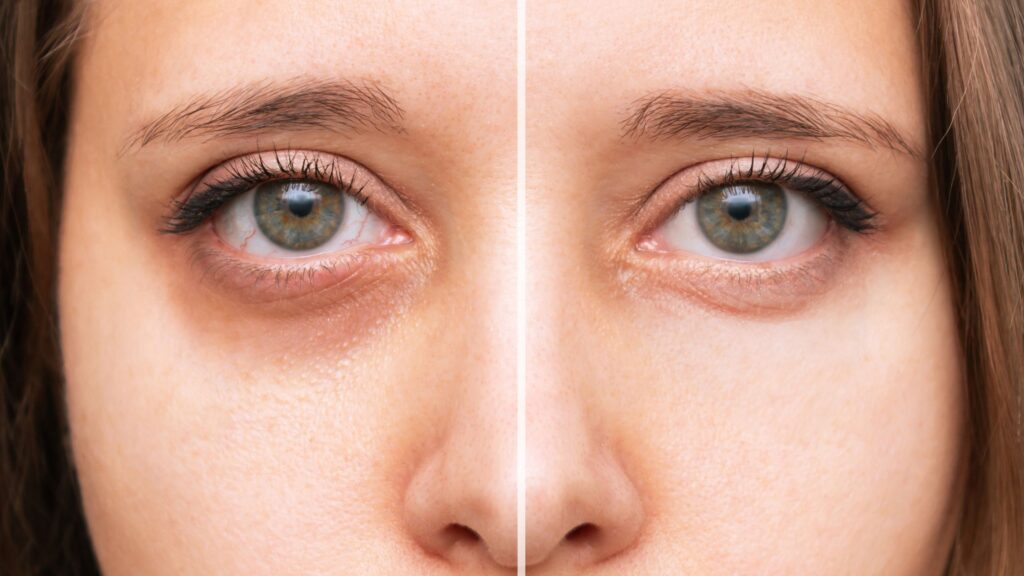
Description: Dark circles and puffiness create a tired appearance. They feature shadowed, swollen areas under the eyes, often accompanied by dull skin.
Solution:
- Cold Compress and Hydration: Apply a cold compress or chilled tea bags under the eyes for 10-15 minutes to reduce swelling and improve circulation. Additionally, ensure you stay well-hydrated throughout the day to help maintain skin elasticity.
- Eye Creams with Active Ingredients: Use eye creams that contain active ingredients like caffeine, hyaluronic acid, and vitamin C. Caffeine can help constrict blood vessels and reduce puffiness, while hyaluronic acid and vitamin C can brighten the under-eye area and promote skin health.
- Adequate Sleep and Healthy Lifestyle: Aim for 7-9 hours of quality sleep each night, as insufficient rest can exacerbate dark circles. Coupled with a balanced diet rich in antioxidants and regular exercise, these habits can improve overall skin appearance and reduce the visibility of dark circles and puffiness.
10. Blackheads and Whiteheads
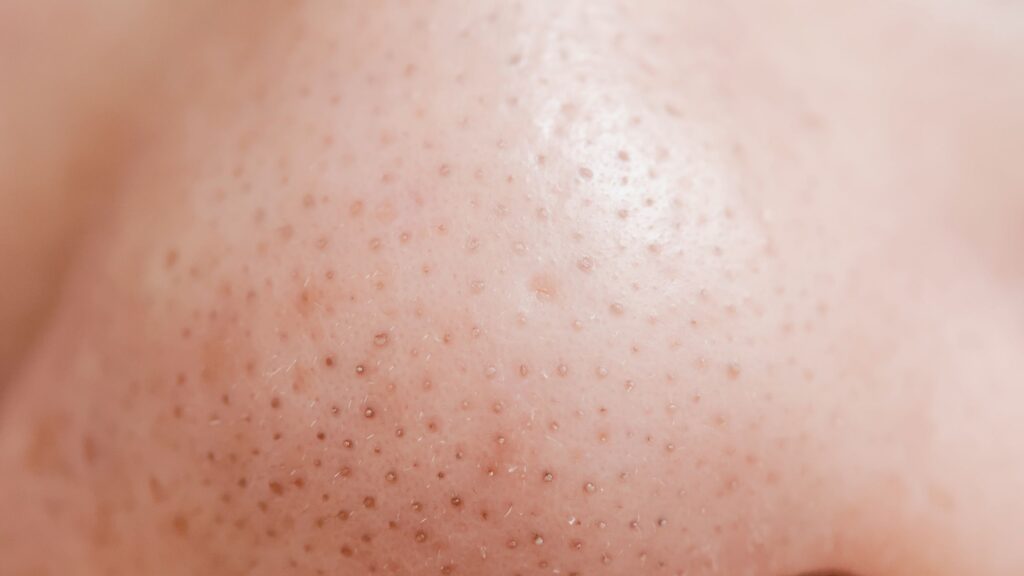
Description: Blackheads appear as small, dark spots on the skin, while whiteheads are tiny, flesh-colored bumps, both caused by clogged pores.
Prevention and Treatment
- Consistent Cleansing and Exfoliation: Use a gentle cleanser twice daily to remove excess oil and dirt. Incorporate mild exfoliants, such as salicylic acid or glycolic acid, 2-3 times a week to help unclog pores and prevent the buildup of dead skin cells.
- Topical Treatments: Consider over-the-counter products containing benzoyl peroxide or retinoids. Benzoyl peroxide helps reduce bacteria and oil production, while retinoids promote cell turnover, making it harder for pores to become clogged.
- Regular Professional Facials or Treatments: Schedule regular facials with a licensed esthetician or dermatologist, which may include extractions and deep cleansing. Treatments like chemical peels or microdermabrasion can effectively minimize black and whiteheads, promoting clearer skin.
Building Your Skincare Routine
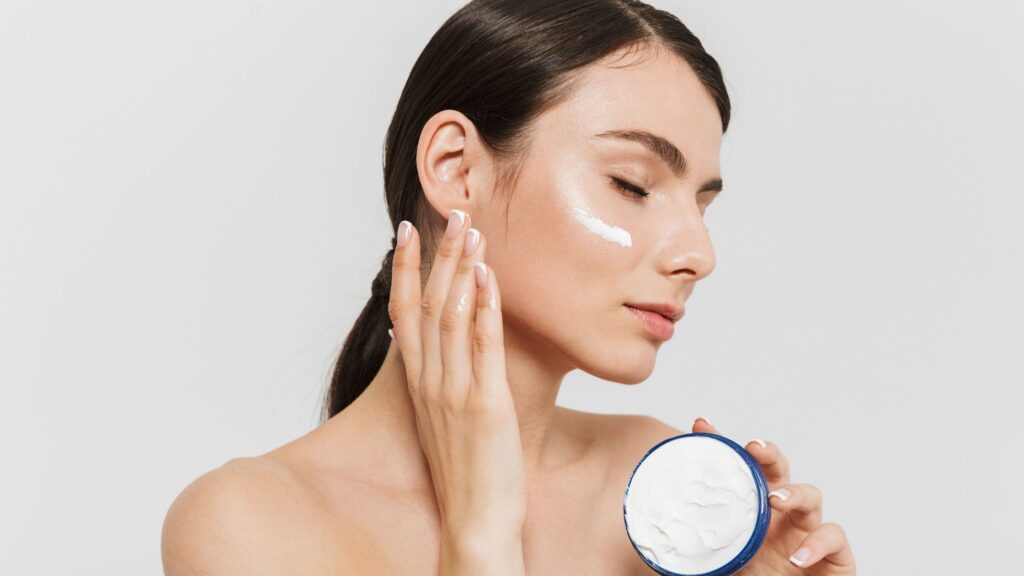
Now that you have insights into various skin concerns, let’s delve into how to construct a comprehensive skincare routine:
Morning Routine:
- Cleanser: Start with a gentle cleanser suitable for your skin type.
- Toner (Optional): This can help balance pH and prep your skin for subsequent products.
- Serum: Choose a vitamin C serum for antioxidant protection.
- Moisturizer: Even oily skin requires hydration; choose a lightweight, non-comedogenic moisturizer.
- Sunscreen: Never skip this step; broad-spectrum SPF protects against UV damage.
Evening Routine:
- Cleanser: Use a more effective cleanser to remove makeup and impurities.
- Toner (Optional): This can help remove remaining dirt.
- Targeted Treatments: Apply treatments for specific concerns (e.g., retinoids for aging or salicylic acid for acne).
- Moisturizer: Night creams often contain more emollients for hydration while you sleep.
Lifestyle Factors that Affect Skin Health

1. Diet
A balanced diet rich in antioxidants, vitamins, and healthy fats can significantly influence skin health.
Recommendations:
- Consume plenty of fruits and vegetables (especially colorful ones loaded with Vitamin C).
- Integrate omega-3 fatty acids in fish, walnuts, and flaxseed oil, which can help reduce inflammation.
- Stay hydrated; drinking an adequate amount of water supports skin elasticity.
2. Sleep
Quality sleep is essential for cellular repair and regeneration. Aim for 7-9 hours of sleep each night, and consider your sleep position (back sleeping is often recommended to avoid pressure on your skin).
3. Stress Management
Chronic stress may exacerbate skin conditions like acne and eczema. Implementing stress-reducing practices such as yoga, meditation, or regular exercise can help improve overall skin quality.
To manage stress, start with meditation. Check out our beginner’s guide to get started.
Common Skincare Mistakes to Avoid
- Skipping Sunscreen: Daily use is essential for maintaining skin health and preventing damage.
- Over-exfoliating: While exfoliation can help with texture and cell turnover, too much can irritate and damage the skin barrier.
- One-Size-Fits-All Products: Tailor your products to your skin type and concerns; what’s effective for someone else may not fit your needs.
- Ignoring Ingredients: Always check labels. Some ingredients can cause irritation or allergic reactions.
When to Consult a Dermatologist
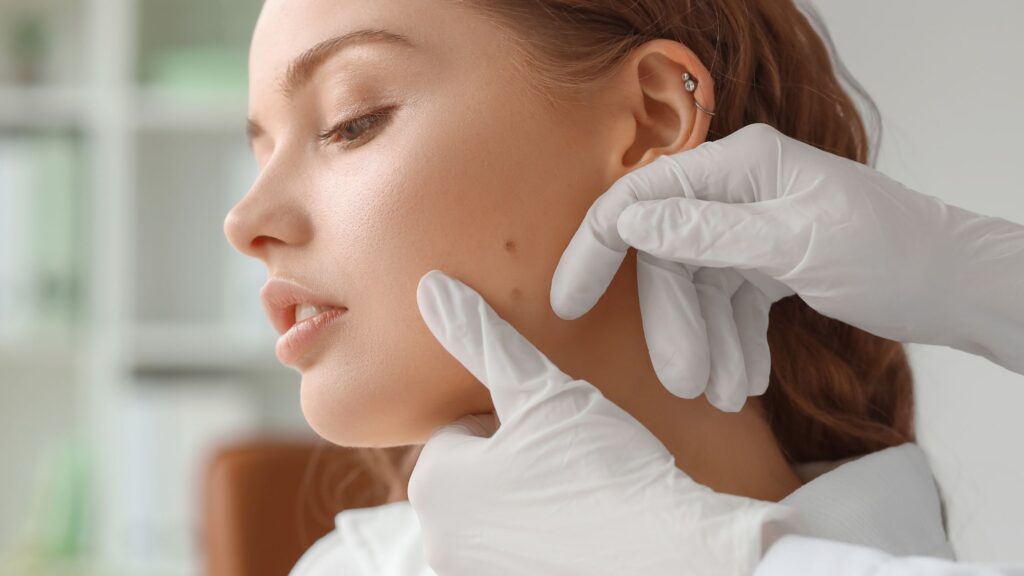
If home remedies and over-the-counter products fail to improve your skin concerns, it’s time to seek professional help. Here are some signs you should consider:
- Persistent acne that doesn’t respond to topical treatments.
- Severe eczema, dermatitis, or psoriasis worsening despite at-home care.
- Unexplained changes in moles or new growths.
- Conditions that significantly impact your self-esteem or quality of life.
Conclusion
Caring for your skin can be fulfilling but requires patience, consistency, and education. You can achieve and maintain a radiant complexion by understanding your unique skin type, addressing specific concerns, and implementing a tailored skincare routine. Remember, it’s always best to consult a dermatologist for personalized advice and treatment options. Your skin is an investment—nurture it, and it will reward you with a healthy, glowing appearance.
This comprehensive guide serves as your roadmap to healthier skin, empowering you with the knowledge to tackle various skincare issues with confidence. Embrace the process, and you will see the benefits shine through!

